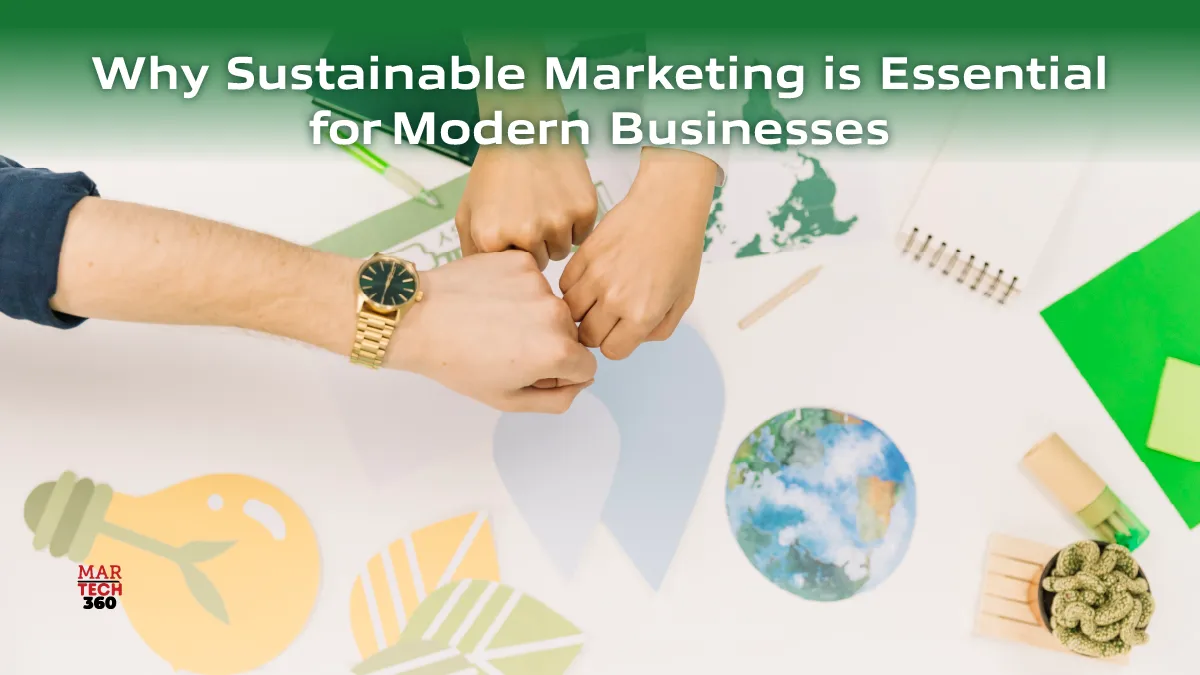Imagine choosing between two products on a shelf: one is packaged in sleek, single-use plastic, and the other comes in biodegradable, eco-friendly material—which one catches your eye? For today’s consumers, the choice is clear. As global awareness of social and environmental issues grows, sustainability is now a powerful force. It shapes purchasing decisions and brand loyalty. It is no longer just a buzzword. Welcome to the world of sustainable marketing.
Sustainability marketing is more than slapping a green label on a product or planting a tree for every purchase. It’s about aligning your brand’s values with a conscientious audience. Craft a narrative that speaks to their desire to make a positive impact. Let’s learn more about this strategy in detail in this comprehensive guide.
What is Sustainable Marketing?
An approach known as “sustainable marketing” centers on developing and advertising goods, services, and projects in a manner that is socially and environmentally responsible. The long-term effects that the company’s operations will have on the environment and society are given top priority.
In essence, businesses that engage in sustainable marketing work to meet customer requirements, change the world, and accomplish business goals.
Beyond only being ethically responsible, sustainable practices are also in high demand.
Why Is Sustainable Marketing Important?

First of all, it’s a great method for companies to support environmental causes.
Advertising for sustainable products is essential because, according to a report, 66% of consumers are likely to pay extra on them. Sustainable and ethical commitments boost customer loyalty and recognition.
Promoting sustainable values can aid in the expansion of a firm. Workers are drawn to companies that consider their social responsibility and impact on climate change. According to a recent survey by Unily, 83% of employees felt their employer wasn’t doing enough to promote sustainability, and 65% said they would like to work for organizations that share their values.
Given the popularity that sustainable banks have gained thanks to more ethical banking options, this is nowhere more apparent than in the banking industry.
And it’s not only about jobs and financial gains.
For the planet, sustainable marketing is essential. More companies adopting an eco-friendly, holistic strategy will help combat climate change and preserve our natural resources.
A firm can cut its environmental impact by:
- Making sustainable products.
- Reducing carbon emissions.
- Eliminating waste.
This benefits the company as well as all parties involved. Truly sustainable business practices may have a tremendous impact on the biggest companies and brands.
Using sustainable advertising strategies can also inspire other businesses to reevaluate their practices. Brands are more likely to follow if they see rivals using sustainability efforts to boost their reputation and customer loyalty.
Large companies can use their influence to set the standard for sustainable development. Just what our planet needs in terms of setting trends.
Also Read: How to Master Sales Intelligence and Close Deals Faster
6 Proven Sustainable Marketing Strategies

To make your marketing more sustainable, understand all the tips, best practices, and strategies you can use. Here are seven of our top suggestions.
1. Be Audience-Led
Sustainable marketing should reflect your business values and resonate with your customers. Aligning your brand with people’s values fosters community, support, and loyalty.
To implement audience-driven sustainable marketing practices, engage directly with your audience. Use Slack, forums, social media like LinkedIn, and news to learn their sustainability priorities. This two-way communication also strengthens engagement marketing efforts.
For example, you might find that a significant percentage of your audience pledged to avoid doing business with emitters of fossil fuels by signing the Clean Creatives pact. If it’s in line with your company’s principles, you can think about spreading information about it and doing the same.
2. Create a Sustainable Brand Narrative
A sustainable brand narrative is a story your company tells. It shows your commitment to sustainable practices and principles. It should cover your goals, products, and practices. Also, it should show how they support social and environmental responsibility.
Simply saying you occasionally care about sustainability is not enough. Nor is it enough to promote eco-friendly items. Rather, demonstrate to your audience the importance of sustainability in your company’s operations.
3. Go Green with Your Virtual Events
In recent years, B2B marketing has turned to virtual events. They are a greener alternative to live conferences and other marketing efforts. A few of the reasons behind this are as follows:
- lower carbon footprint, particularly in relation to air travel
- More energy efficiency in digital infrastructure as opposed to physical infrastructure
- Preservation of resources, specifically those such as paper and plastic
- Overall decrease in waste
- Improved inclusion and accessibility
4. Be Part of Sustainable Initiatives and Projects
Get your company involved with the many groups working to improve and sustainably develop the world!
Participating in social and environmental projects is a great way to support your organization’s causes. It shows others that you’re making a real impact. There are numerous ways to make the world a better place, and you’re in a better position to do it as a business.
Also, consider a formal collaboration with a community or NGO if you have a strong relationship with them.
5. Prioritize Long-Term Social Responsibility
Companies nowadays must realize that social and environmental responsibility is more than just a box to be checked off a list. They can’t start the project in Q1 and finish it by the end of Q3, either. In the long run, sustainability must be integrated into the company’s mission and business practices.
6. Showcase Your Sustainability Efforts
The eco-friendly B Corporation Allbirds, which offers clothes and shoes, frequently updates its Instagram account with information about its sustainable production methods and materials.
As your company works on sustainability projects, don’t keep them to yourself. Using social media to promote your work is key to sustainable marketing. It should be part of your content strategy, ads, and PR efforts.
Patagonia’s Success Story in Sustainable Marketing
Patagonia is renowned for being one of the most socially and environmentally conscious apparel brands.
Their sustainable marketing strategies promote eco-friendly materials, renewable farming, and lower carbon footprint. They also urge customers to repair and recycle clothes. They walk the walk and talk the talk.
Fast fashion was subtly mocked by its “Buy Less, Demand More” sustainable fashion campaign. Patagonia urged customers to buy high-quality, secondhand gear. And, they should hold companies accountable for their actions. The brand promoted its ethical, mindful products. It emphasized its use of sustainable, organic materials and repair programs.
Patagonia urged customers to buy responsibly on Black Friday. It’s one of the biggest, most wasteful shopping days of the year. Its anti-commercial, “Don’t Buy This Jacket,” tackled the problem of consumerism and promoted more environmentally friendly solutions.
With their YouTube short-form videos about building a sustainable business, Patagonia has also added to the collection of sustainability documentaries.
Closing Thoughts
Businesses can use sustainable marketing to show their commitment to sustainability. They can promote their eco-friendly and socially responsible products and services.
It helps the environment as well as businesses. It can build trust and long-term customer relationships.
It can improve a business’s reputation. It can also promote change and inspire other companies to adopt ethical, eco-friendly practices.
Companies can use many ideas. The key is to ensure open communication and a forward-thinking attitude. It also works well to use a variety of platforms and campaign strategies for a comprehensive approach.
Businesses must prioritize sustainable marketing practices and embrace greener, more ethical ideals as consumers grow more ecologically sensitive.


Comments are closed.